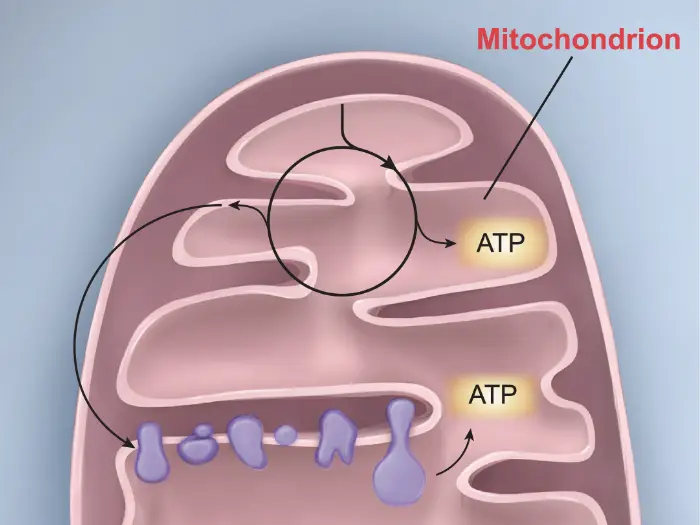The Science section of the ACT evaluates your interpretation, analytical, and problem-solving skills. The questions check your knowledge of the natural sciences, including physics, chemistry, biology, and earth/space sciences (geology, astronomy, and meteorology). This all-in-1 ACT Science guide explores the format, syllabus, question types, and scoring pattern of the test. We also discuss what science is on the ACT and share some study tips to help you prepare more effectively.
ACT Science Format and Syllabus
On the ACT Science test, there are 7 passages followed by 40 questions to be answered in 40 minutes. In this section, the scientific information is presented in 1 of the following formats:
- Data Representation (25–35%)
- Research Summaries (45–60%)
- Conflicting Viewpoints (15–20%)
Though the passages and questions are based on science topics, you do not need to master the details of every scientific fact. Instead, you are asked to comprehend, analyze, and evaluate scientific information within the graphs, tables, charts, and diagrams given in the passages.
What Types of Questions Are on the ACT Science Test?
You will find 3 types of ACT Science questions on your test: Interpretation of Data, Scientific Investigation, and Evaluation of Models, Inferences, and Experimental Results. All of the questions in the science section are multiple-choice.
-
Interpretation of Data Questions
About half of the questions on the ACT Science test are Interpretation of Data Questions. These questions focus on your ability to read a graph, evaluate trends in the data, and translate information from the given graphics. You should be able to summarize the information in a graph, table, or scatterplot. Expect to answer questions that ask you to use the information in the passage to select a graph that reflects specific relationships, correlations, or findings from the text. For more practice, check out our ACT question bank to sharpen your data interpretation skills.
-
Scientific Investigation Questions
These questions will assess your understanding of how an experiment is designed. You will use this understanding to answer questions about additional factors, tests, or trials. Some of these questions will ask you to pinpoint the different factors in the experiment. Other questions will require more steps to draw comparisons. You may have to make adjustments to the procedure and draw conclusions based on the changes. To better understand what to expect, explore our ACT assessment test resources for sample questions and strategies.
-
Evaluation of Models, Inferences, and Experimental Results Questions
These questions assess your ability to apply the information in the passages to various conclusions. You may be presented with a conclusion to decide whether it is valid, given the results of the study, the data in the model, or the inferences made throughout the text. You may also have to use the results in a passage to draw conclusions and make predictions of your own.
If you are curious to learn about the topics covered in the other ACT subjects, check out our article on the ACT syllabus.
Can I Use a Calculator on the ACT Science Test?
No, using a calculator on the ACT Science test is not permitted. You can only use a calculator in the math section.
Is the ACT Science Section Hard?
Generally, students find it easy to solve questions that require data interpretation. However, questions that require drawing conclusions from multiple data sources are more complicated, as they are more difficult to get right. Remember that the test checks your understanding of scientific reasoning rather than your knowledge of scientific facts.
In addition, keeping up with the pace of the test can be overwhelming because you get less than a minute to spend per question. While you may be able to answer some questions without reading the passage by just interpreting the graphs and charts, other questions may consume more time since they require choosing the right information from the passage. With the right practice, you can quickly respond to each question type. A great way to get started is by using an ACT practice test PDF with answers to see how questions are structured and learn from detailed explanations.
What Level of Science is on the ACT?
You are not required to have advanced knowledge about science subjects to be successful on the ACT Science test. However, you will find questions related to concepts and theories learned in general introductory science courses.
How to Calculate ACT Science Score
The ACT Science score ranges from 1-36 and is calculated by converting the raw scores to scaled scores. Your raw score is the number of questions you answer correctly on the test. There is no penalty for wrong answers or the questions you leave blank. The raw score of a section depends on the number of questions present in it. Since there are 40 questions in the Science section, the raw score range for this section is 0-40. After your raw score is calculated, it is converted to a scaled score of 1-36.
To learn about the ACT Science scoring pattern in detail, be sure to check out our ACT scoring guide.
What is a Good ACT Science Score?
The average ACT score for a particular year can determine a good ACT Science score. Getting an above-average score is considered good.
What is the Average ACT Science Score?
Depending on the number of test-takers, the average ACT Science score may vary from year to year. In 2024, the average ACT Science score was 19.7.
What is the Passing Score for the ACT Science Test?
There is no passing score for the ACT Science test.
What is a Bad ACT Science Score?
If you score less than the average science score for a particular year, it might be regarded as a low score.
ACT Science Test Prep Tips
Let's review the best ways to achieve a high ACT Science score:
-
Learn what is tested on the science section
It is important to know the test structure, question types, and format of the passages so that nothing catches you by surprise on test day.
-
Know your areas of improvement
To prepare for your test effectively, identifying your growth opportunities allows you to focus your attention and study efforts. Learn more tips and strategies for improving your science score in our ACT Science study guide.
-
Save time wherever possible
Many questions have answers in the tables and graphs provided. Skimming passages will save you valuable time.
-
Avoid careless mistakes
Careless mistakes can be a big setback. You might know how to solve a question, but a lack of focus or too much nervous energy can make you commit an error. Timed and untimed practice ahead of the exam helps train your mind to respond to questions more calmly and focus.
Now that you know what is tested in the ACT Science section, the next step is to start practicing. Try UWorld’s ACT Science Practice Tests to gain valuable experience with each passage format and question type. Our online learning course includes thousands of sample questions that are realistic to the style and level of difficulty that you will work with on the official ACT test.

Read More About the ACT Test
Check out this guide if you are preparing for the ACT English section. Learn more about the ACT English format, syllabus, important topics, and scoring.
About ACT ReadingStarting your Reading test prep? Read on! This guide discusses everything about the ACT Reading format, syllabus, scoring pattern, and difficulty level.



